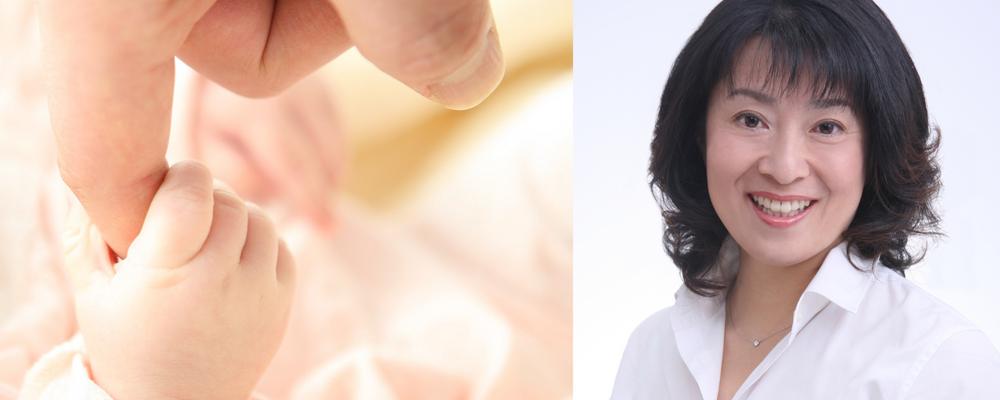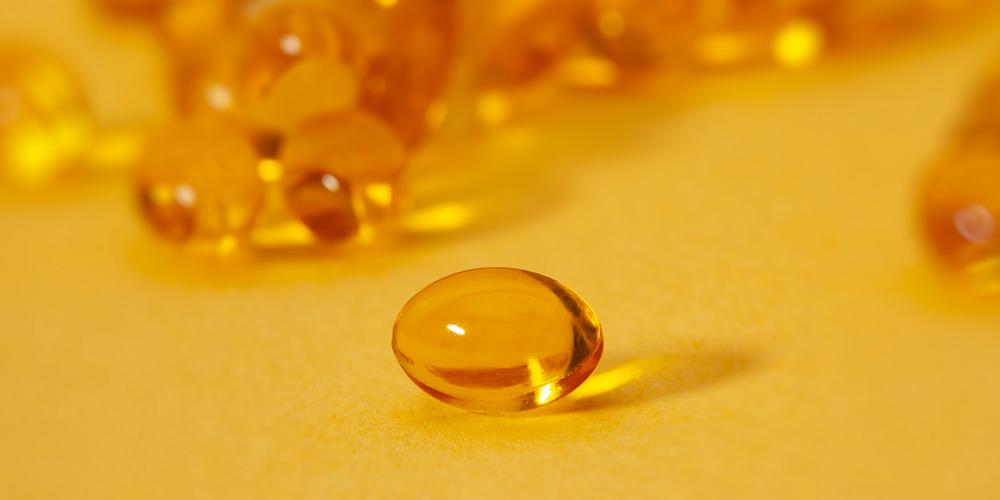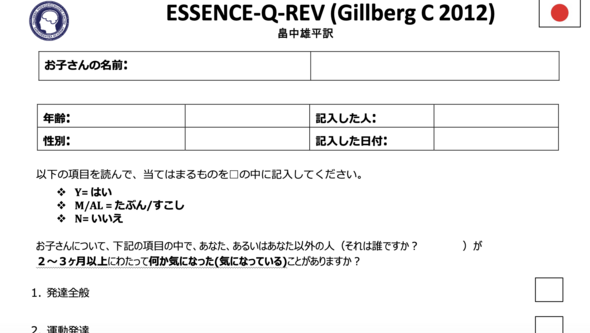
- Home
- Research
- Find research
- Pre- and Perinatal Factors and Early Child Development
Pre- and Perinatal Factors and Early Child Development
Koko Yasumitsu-Lovell discusses her fascinating PhD project "Pre- and Perinatal Factors and Early Child Development"
Koko, please can you tell me a bit about yourself?
It is a little difficult to introduce myself with regard to which country I am from and what my cultural/national identity is, not having one particular country I feel I belong to. I was born to Japanese parents in Japan but spent most of my childhood in Indonesia. More than 10 years of my twenties and thirties were spent overseas – including 3.5 years in Gothenburg.

Similarly, my career path changed overtime – I studied economics, business, and international relations before entering into research in child psychiatry. I was lucky enough to visit the Gillberg Neuropsychiatry Centre with paediatricians and child psychiatrists from Kochi prefecture in spring 2011. At that time, I had just started working as a research administrator running the Japan Environment and Children’s Study (JECS) in Kochi prefecture Professor Gillberg and all the members of the GNC welcomed us so warmly, and I was just sucked into the fascinating world of child psychiatry. Now every time I learn something new, I feel like I have a new pair of glasses, wanting to be more empathetic towards each person I meet, and to contribute to this field even if my contribution is very small.
Your PhD project is called Pre- and Perinatal Factors and Early Child Development. Can you please tell us a bit about this?
Aetiology of neurodevelopmental disorders vary, with genetic and/or environmental factors contributing in complex manners. Among environmental factors, the pre- and perinatal periods are crucial, possibly shaping the lifetime overall wellbeing of individuals, including neurodevelopment. Some of the readers may still remember the volume of Time magazine (Oct. 2010) “How the First Nine Months Shape the Rest of Your Life”. Well, the project I am working on, the Japan Environment and Children’s Study (JECS) (2011- ongoing), has been following up 100,000 mother-child dyads during the pregnancy period. We have been most fortunate in that we have been able to collect valuable information from the prenatal period.
You have just published your first paper on birth month and infant gross motor development. It sounds fascinating. Could you please summarise your research and results? Do the results surprise you?

Previous studies showed that birth month has a significant impact on humans diseases during their lifetime, such as allergies and neurodevelopment. The first paper investigated the association between birth month and child gross motor development at 6 and 12 months of age in a large cohort of infants (n = 72,203) participating in the JECS. Gross motor development was assessed using the Ages and Stages Questionnaire (ASQ-3). At 6 months and 12 months, 20.7% and 14.2%, respectively, had ASQ-3 indications of gross motor problems. Birth month was strongly associated with gross motor development at both time points, particularly at 6 months. Summer-born infants had the worst outcomes at both 6 months and 12 months of age. This outcome applied to the ASQ-3 score itself and to the adjusted Relative Risk (aRR), with the highest aRRs (relative to January-born) among August-born (aRR 2.51; 95%CI 2.27–2.78 at 6 months), and June-born (aRR 1.84; 95%CI 1.63–2.09 at 12 months). We speculate that seasonal factors—such as maternal Vitamin D deficiency and influenza infection—affecting the foetus in early pregnancy might account for the findings.
What did surprise me was that previous studies showed the importance of Vitamin D in neurodevelopment, but the results were not consistent. Without having the information from biospecimen (maternal serum Vitamin D levels), I started out analysing maternal Vitamin D intake, acquired from a self-administered questionnaire, and the child’s overall development, such as gross and fine motor skills, communication, social-personal, and problem-solving development. I did not find a statistically significant association between the original pair – maternal vitamin D intake and child development – but in the process of thorough analyses, I found a very interesting “cyclical trend” in the association between birth month and gross motor development. In a lab environment, it could be something like an unexpected by-product after long exploration/experiment. So that was a very nice surprise.
I hear that you are working on a second study on pre-perinatal optimality and development. What is this study about?
Utilising the optimality scale, introduced by Professor Prechtl in 1968, developed by Professor Gillberg, and utilised by many researchers over a long period of time, the second study attempts to grasp the effect of various pre- and perinatal factors as a whole, instead of focusing on each individual factor of child development. We assessed development of children as young as one month of age comparing it with some neurodevelopmental diagnoses at three years of age to look for any early signs of later diagnoses of neurodevelopmental disorders. We are almost ready to submit the manuscript to a journal. I look forward to reporting the results of the study in the near future.
Serum Vitamin D and development is your third study. What are you aiming to look at? Any hypotheses?

Unfortunately, the analyses for the first paper were conducted without biospecimen information, and gross motor development was assessed by their parents. So even though we speculated that Vitamin D could play an important role in child neurodevelopment, and birth month could be a proxy of Vitamin D, we could not pinpoint the mechanism behind the association between birth month and gross motor development. For the third study, we closely looked at a JECS sub-cohort (5000 children) and investigated the association between serum Vitamin D levels when the participants were 2 years old and their developmental test results. The tests (Kyoto Scale of Psychological Development and Neuromotor 5-min exam 2 year-old version) were conducted by those especially trained for the JECS, including paediatricians and clinical psychologists, which also enabled us to overcome some limitations of the first study. I am thrilled to start analysing the data thoroughly, particularly because I was part of the team when the 5-min exam was developed by the GNC and the JECS groups.
The ESSENCE-Q will be used in your fourth study. How will you use the questionnaire and for what exactly?

As everyone knows, ESSENCE-Q is a very simple, easy-to-answer screening questionnaire. Although it has been used widely in various countries, I very much doubt that it has been used for 100,000 parents in a cohort study all over Japan. The data has been collected already with parent-reported-doctor-diagnosis information on some neurodevelopmental disorders, so I am very eager to start analysing the data regarding the validity of the ESSENCE-Q in my latter half of my PhD.
What have been the advantages and disadvantages of doing your PhD so far away?
In the beginning, it was difficult to keep myself motivated and stay on track while working full time back in Japan. Very fortunately, I have been mainly working on the operational side of the JECS in Kochi, one of the fifteen Regional Centres, so my work is not completely separated from my PhD project, and I have many colleagues I can share ideas with back in Japan. The geographical challenge started to improve rapidly once our collaboration on the ARFID project was launched in 2018, and it became even better in the last 12 months thanks to our monthly online meeting with my supervisors connecting Sweden, Scotland, and Japan.
Your half-time control is coming up very soon. How does this feel?
This is very straightforward to answer! I am EXTREMELY NERVOUS (and apprehensive), particularly knowing that anybody can join me from anywhere in the world via Zoom…. At the same time, with the strong support and supervision I have been receiving from Sweden, Scotland, and Japan, I am telling myself that I should be able to manage it. It will be interesting as I am currently in Melbourne and with the time difference, I will start my half-time presentation from midnight here!